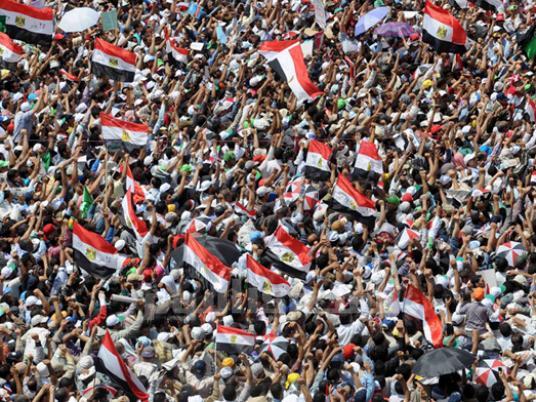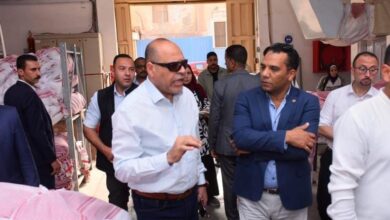
The number of protests in Egypt increased during the first half of April, with 121 protest held by various work sectors, the Egyptian Center for Economic and Social Rights said in a report Wednesday.
“The escalation of protests in most workplaces confirms that the workers’ demands for fair working conditions and a decent life have not stopped yet, as none of them have been met,” the center said.
Protests in the government sector accounted for the largest number of protests, with 58 held in various government buildings. Private sector workers held 42 protests. There were 14 general protests, as well as four other public sector protests and three private sector protests.
The protests included 31 sit-ins, 23 demonstrations, 17 road blocks, 16 strikes, four rallies, three cases of storming into officials’ offices, two attacks on officials, two hunger strikes and one case of siege and blocking of the Shura Council’s entrance by Petrojet workers.
Labor strikes included 32 by factory, company and bank employees, 18 by government office employees, 12 by students, nine by drivers, eight by teachers and university faculty members, six by paramedics, five by farmers, three by medical sector workers, and three by tour guides. Journalists, traders, private business owners and police held one strike each.
The largest number of protests took place in Cairo with 38 protests, followed by Alexandria with 13, Giza with 12, Daqahlia with seven and Beni Suef with five. Sharqiya, Monufiya, Fayoum, and Assiut each had four, while Suez, Ismailia, North Sinai, Gharbiya and Damietta each had three.
The most common demands from protesters included improvement of living conditions and increasing salaries and incentives, which accounted for 36 cases.
Fifteen protests demanded permanent employment, seven protested the lack of diesel fuel, three demanded the creation of job opportunities, and three protested the formation of the Constituent Assembly.
Student protests included demands for student elections and reduced student fees, and opposition to expulsions and exam results.
Farmers demanded the establishment of a disaster compensation fund and a livestock ministry following the foot-and-mouth disease outbreak and the deaths of tens of thousands of cattle. They also protested the lack of water access for their lands and for a fair share of fertilizers.
Edited translation from Al-Masry Al-Youm




